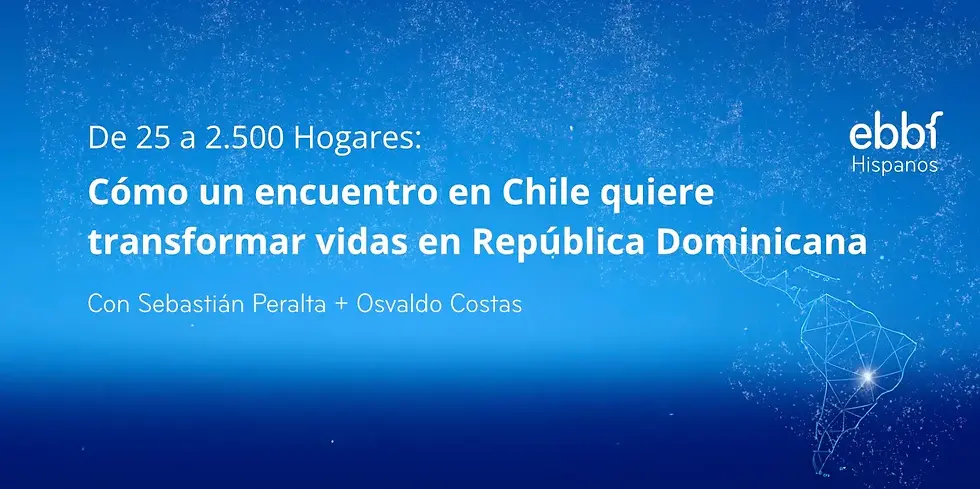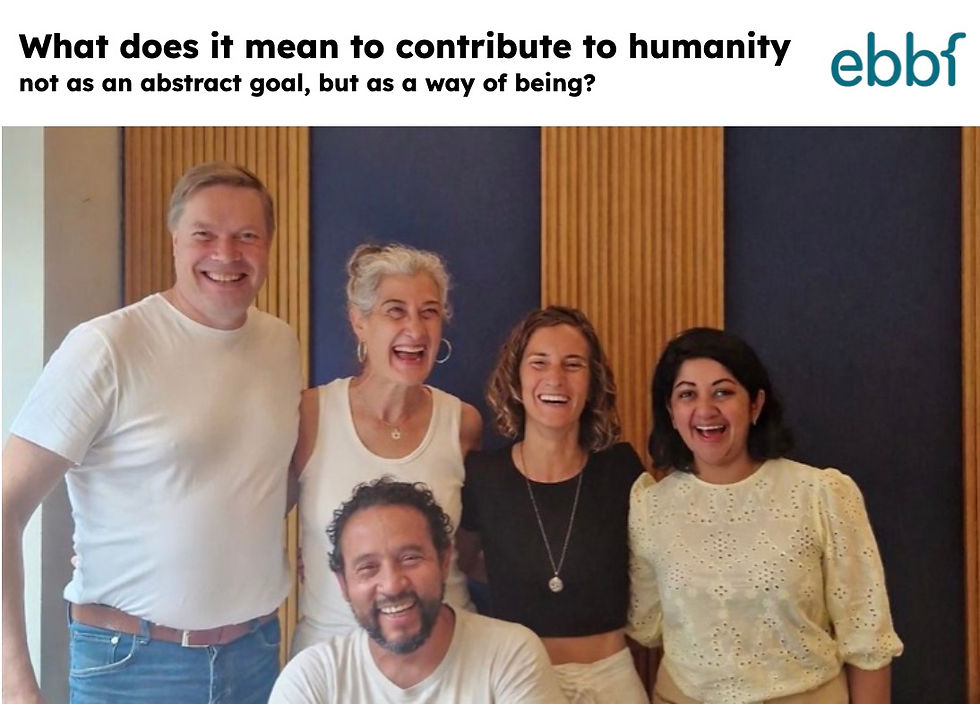#ebbfgovernance – Better Listening, Better Decisions, Better Governance: What can 350 years of
- Mar 13, 2018
- 3 min read
Eoin McCarthy FIC CMC MBA (Warwick) and Sarah James Wright will be amongst the over 20 speakers at the next ebbf international annual conference #ebbfgovernance and have offered this insightful article for you.
.
“Business that blindly serves its own ends is no longer sustainable from an economic, let alone a ecological standpoint. We need to conduct business with an awareness of its relationship to and impact on the individuals it touches and the communities and ecosystems it is a part of. But how can we determine what is best for the system as a whole? To help us reframe our approach, we can access a range of tools, both time-honoured and modern, that all point to a fresh set of leadership capacities and the value of deep listening.
The idea that business can serve more than its own financial interests isn’t new. The Quaker Business Method has been in use for over 350 years and helps organisations reach decisions that everyone can agree to, without leaving individuals feeling unheard. Quakers keep on returning to it as a model that works, and now, with increasing attention being paid to diversity, inclusivity, transparency and just process, more and more organisations are becoming interested in this method of conducting business meetings and arriving at decisions.
It’s markedly different from the decision-making taking place in most organisations. Recognising that human beings and all other life and matter are mysteriously interconnected, the primary objective is to seek unity in decisions: to find a way forward that is
acceptable to all present. This is not so easy to do, especially when the issue is a controversial one, or when there are strongly held opposing views. The outcome is not necessarily one that everyone agrees with, but one that all present can accept, in the knowledge that their views have been heard and considered. It is often necessary to recognise that a minority view continues to exist. The expectation is that there can be a best outcome for a decision-making business meeting. Even if the best outcome is to see that today is not the time to take a given decision.
Working for the benefit of the whole system, and including all dissonant voices rather than allowing the most powerful voice to dominate, are features common with many modern methodologies for next generation business. Theory U emerged from one of the world’s leading business schools (Massachusetts Institute of Technology) to help leaders break through ineffective patterns of decision-making that produce results nobody wants.
The Theory U method guides a leader or team on a journey to discover what they don’t know, inviting them to deepen their levels of trust in each other as they explore uncertain territories and listen to the edges of the system. It emphasises listening as a key leadership capacity and helps us learn to listen with an open mind, open heart and open will.
Similarly Systemic Constellations enable us to gather data from all parts of the system and to listen to all voices. This key principle of inclusion extends beyond the organisation as a living system, to the wider environment represented outside of the room. It requires the capacity to listen with felt senses to the embodied data – using our innate ‘antenna’ to register hidden dynamics occurring between elements in the system and within ourselves.
Crucially, non-human elements can also be represented. We build a living map of internal patterns (people, relationships, perspectives, etc) as well as external forces (the environment, the market, regulatory policies, etc). In this way we get a clear picture of what is making an impact. Visually and viscerally, we are able to have a direct experience of the complex dynamics at play.
All three ways of exploring key decisions have common threads, which are useful takeaways for people examining their own decision-making process and governance.
All work for systemic priority – so it’s about arriving at a decision that works best for the whole, not just getting something done
Time is given to the decision-making process outside of normal pressures – ‘spacious time’ rather than ‘clock time’, which can paradoxically bring a better, faster, shared solution
Our own availability and readiness to show up matters – with people feeling included and equal in standing
Someone holding point – but all are taking responsibility – not leaving it to a leader
Using levels of listening – multi-sensory, multi-dimensional – as well as allowing silence and spaciousness for oneself and others
Actively managing personal feelings (e.g. disappointment) and ensuring we are in service of the whole, not ego agendas
Ensuring nothing has been forgotten or excluded – have all parts of the system been heard and has the deeper field of life purposefully communicated through us?
By listening deeply and listening into the whole, today’s leaders can better meet the challenges of the volatile, uncertain, chaotic and ambiguous (VUCA) times we find ourselves in.
For further information please visit qandb.org or generativework.space “







Comments